Dry Type Transformer Fundamentals and Power Quality Solutions – Hammond (PLEASE NOTE NEW DATE & TIME)
Room: Auditorium, Bldg: PSE&G - Hadley Road Facility, 4000 Hadley Road, South Plainfield, New Jersey, United States, 07080 Hadley Road 4000, South PlainfieldSEMINAR OUTLINE: • Fundamentals of dry type transformers • Using transformers for current limitation • Live demonstration of Power Quality solution • Linear vs. non-linear loads • Harmonics • VFD operation • Single phase harmonic solutions • Three phase harmonic solutions • VFD load side filtering • Emerging markets and applications Hammond Power Solutions c/o the IEEE is proud to offer the informative presentation and live demonstration of power quality solutions for variable frequency drives (VFDs). VFDs provide fine motor control and energy savings but they also produce harmonic content on the system. High harmonic content can lead to issues such as: equipment overheating, communication issues, nuisance OCPD trips and possible utility fines. We will present the various transformer filtering technologies and demonstrate how they work. In addition, participants will learn more about dry type transformer ratings, such as K factor, temperature degree rise, etc. for the proper development of engineer’s specifications, as well as transformer applications in commercial/industrial/datacenter projects. Speaker(s): Dave, Chris Agenda: PLEASE NOTE THE CHANGE IN TIME FOR THIS PARTICULAR SEMINAR. WE WILL BEGIN AT 8AM AND WRAP UP BY NOON. The seminar fee includes lunch, refreshments and handouts. Non-members joining IEEE within 30 days of the seminar will be rebated 50% of the IEEE registration charge. Four hours of instruction will be provided. If desired, IEEE Continuing Education Units (0.4 CEUs) will be offered for this course - a small fee of $55 will be required for processing. Please pay attention to the “Registration Fee” and choose the appropriate choice either with or without CEUs. CEU Evaluation Form can be found at: (https://innovationatwork.ieee.org/ieee-pes-northjersey-certificates/) Room: Auditorium, Bldg: PSE&G - Hadley Road Facility, 4000 Hadley Road, South Plainfield, New Jersey, United States, 07080
Digital Signal Processing (DSP) for Software Radio
Virtual: https://events.vtools.ieee.org/m/450597Course Kick-off / Orientation 6:00PM – 6:30PM EDT; Thursday, February 20, 2025 First Video Release, Thursday, February 20, 2025. Additional videos released weekly in advance of that week’s live session! Live Workshops: 6:00PM – 7:30PM EDT; Thursdays, February 27, March 6, 13, 20, 27 Registration Fees: IEEE Member Early Rate (by February 6): $190.00 IEEE Member Rate (after February 6): $285.00 IEEE Non-Member Early Rate (by February 6): $210.00 IEEE Non-Member Rate (after February 6): $315.00 Decision to run/cancel course: February 13, 2025 Registration is open through the last live workshop date. Live workshops are recorded for later use. Course Information will be distributed on Thursday, February 20 in advance of and in preparation for the first live workshop session. A live orientation session will be held on Thursday, February 20. Attendees will have access to the recorded session and exercises for two months (until May 27, 2025) after the last live session ends! This is a hands-on course combining pre-recorded lectures with live Q&A and workshop sessions in the popular and powerful open-source Python programming language. Pre-Recorded Videos: The course format includes pre-recorded video lectures that students can watch on their own schedule, and an unlimited number of times, prior to live Q&A workshop sessions on Zoom with the instructor. The videos will also be available to the students for viewing for up to two months after the conclusion of the course. Course Summary This course builds on the IEEE course “DSP for Wireless Communications” also taught by Dan Boschen, further detailing digital signal processing most applicable to practical real-world problems and applications in radio communication systems. Students need not have taken the prior course if they are familiar with fundamental DSP concepts such as the Laplace and Z transform and basic digital filter design principles. This course brings together core DSP concepts to address signal processing challenges encountered in radios and modems for modern wireless communications. Specific areas covered include carrier and timing recovery, equalization, automatic gain control, and considerations to mitigate the effects of RF and channel distortions such as multipath, phase noise and amplitude/phase offsets. Dan builds an intuitive understanding of the underlying mathematics through the use of graphics, visual demonstrations, and real-world applications for mixed signal (analog/digital) modern transceivers. This course is applicable to DSP algorithm development with a focus on meeting practical hardware development challenges, rather than a tutorial on implementations with DSP processors. Now with Jupyter Notebooks! Speaker(s): Dan Boschen , Agenda: Kick-off / Orientation: Thursday, February 20, 2025 Topics / Schedule: Class 1: Thursday, February 27, 2025 - DSP Review, Radio Architectures, Digital Mapping, Pulse Shaping, Eye Diagrams Class 2: Thursday, March 6, 2025 - ADC Receiver, CORDIC Rotator, Digital Down Converters, Numerically Controlled Oscillators Class 3: Thursday, March 13, 2025 - Digital Control Loops; Output Power Control, Automatic Gain Control Class 4: Thursday, March 20, 2025 - Digital Control Loops; Carrier and Timing Recovery, Sigma Delta Converters Class 5: Thursday, March 27, 2025 - RF Signal Impairments, Equalization and Compensation, Linear Feedback Shift Registers Virtual: https://events.vtools.ieee.org/m/450597
Follow the Beat: Analyzing and Generating Conducting Gestures Using Computers
Room: STEM 102, Bldg: STEM Building, The College of New Jersey, 2000 Pennington Rd., Ewing, New Jersey, United States, 08618, Virtual: https://events.vtools.ieee.org/m/452460 Pennington Road 2000, Ewing TownshipMusical conducting is a unique blend of musical performance and communication. Conductors are the only musicians who can freely move their hands to create sound, without having their gestures constrained by a rigid instrument, as their instrument is the entire orchestra. The act of conducting can also be seen as communication, as the conductor is using gestures to convey information to the other musicians. While gesture recognition is a widely researched topic in human-computer interaction, conducting hasn’t been studied too extensively. This talk will present some research work on analyzing, generating, and recognizing conducting gestures, highlighting both methods and applications. Speaker(s): Andrea Salgian, Room: STEM 102, Bldg: STEM Building, The College of New Jersey, 2000 Pennington Rd., Ewing, New Jersey, United States, 08618, Virtual: https://events.vtools.ieee.org/m/452460


